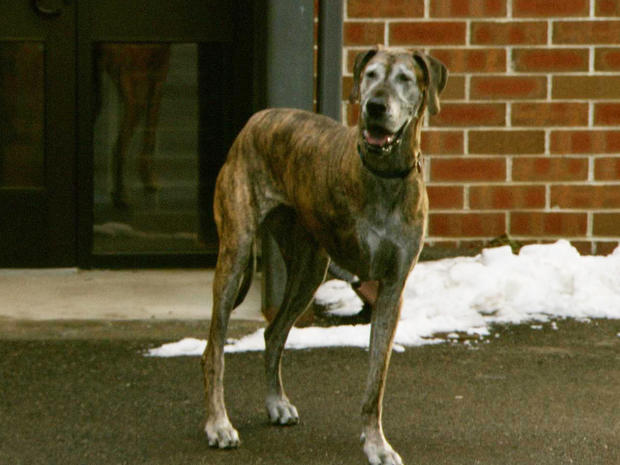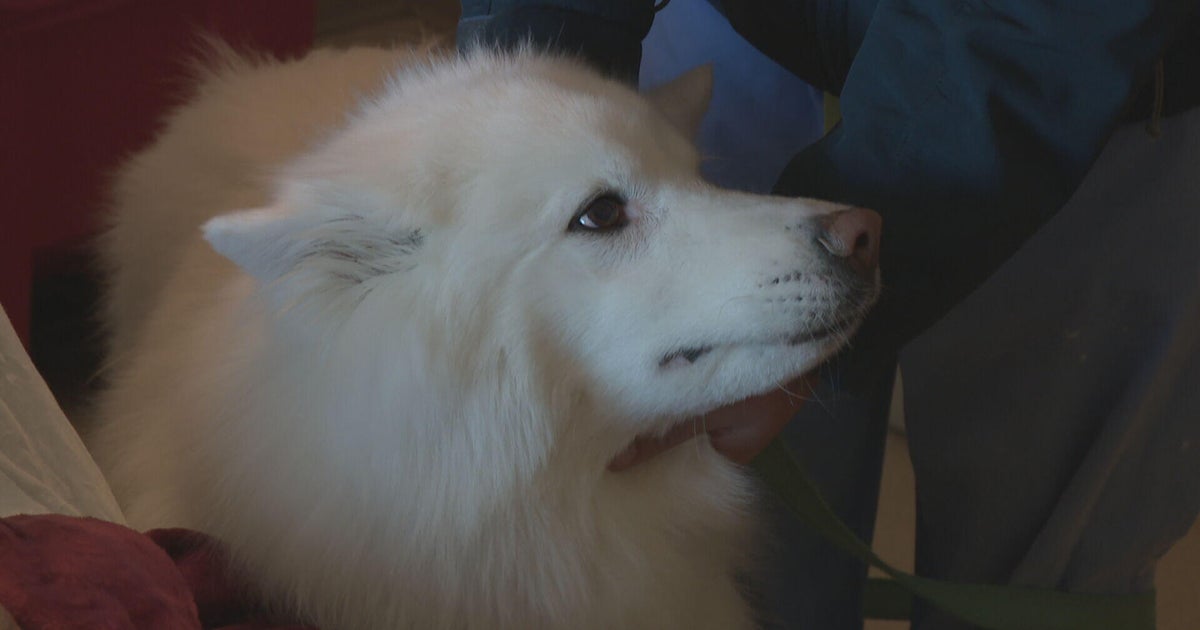On The Horizon: How dogs may help fight bone cancer
A multitude of potential advances are ON THE HORIZON in the field of cancer research, as reported by Susan Spencer:
When we first met Zoe last winter, she was eight years old, full of heart, and doing pretty well on only three legs. Yeah, that's a good girl!
Doctors had to amputate one of Zoe's front legs last fall when she was diagnosed with life-threatening bone cancer.
"Dogs get cancer," said Dr. Cheryl London. "It's the most common reason for a dog to die."
Last winter Zoe and fellow Great Dane Murphy were part of a new study which may help people as much as their dogs.
It's the pet project of veterinarian Cheryl London, a research professor at Cummings School of Veterinary Medicine at Tufts University, and Dr. Katie Janeway, at Dana-Farber/Boston Children's Cancer Center.
"We are trying to understand cancers in dogs and develop new treatments, and then apply those to humans," Dr. London said.
This growing field is called comparative oncology -- veterinarians teaming up with cancer doctors to find a cure.
"It puts the whole idea of dog being man's best friend in a completely new light!" said Spencer.
"Nobody would think of them as volunteers in a clinical trial of a new drug that could someday save your life."
And may save theirs.
Oncologist Janeway treats the same type of bone cancer in children that London treats in dogs: Osteosarcoma.
"It's been three or four decades since we've had a new approach in osteosarcoma that's worked," Dr. Janeway said.
"How is this any better than using the traditional model, of the mouse in the lab?" asked Spencer.
"Mice don't have an immune history like you and I do," Dr. London replied. "Because they're kept in cages, and they're isolated. Dogs get exposed to many different antigens."
And osteosarcoma, in kids and dogs, is astonishingly similar.
And the ultimate goal here? "Very promising new drugs for osteosarcoma," said Dr. Janeway.
A new drug won't come in Zoe's lifetime, or Murphy's. Since we first met them, they've both succumbed to their disease. But this research still has their pawprints all over it.
An earlier version of this report was originally broadcast on March 12, 2017.
See also:
For more info:




